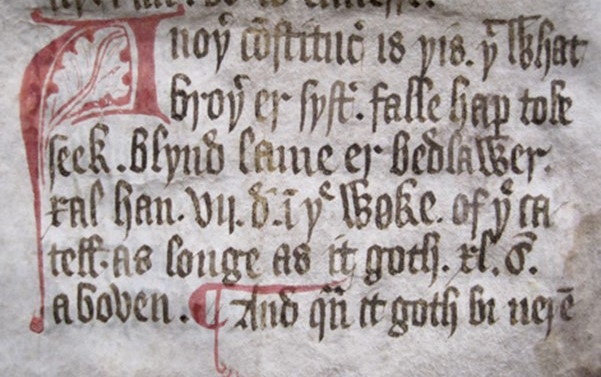Treasures from Wymondham Parish Records
At the March meeting of Forncett History Group John Herne gave a fascinating talk about the history of Wymondham, illustrated by items from Wymondham Parish Records. John has many years of experience in local history and is currently the archivist at Wymondham Abbey. He was also a major contributor to the excellent three volume history of Bunwell published by Bunwell Heritage Group between 2014 and 2022.
John introduced his talk with an explanation of the extensive collection of historical records held both in the archive of Wymondham Abbey and the Wymondham Town Archive. John's interest in historical records started with researching his own family history but rapidly extended to local history of which he now has many years' experience. He is self-taught and this has involved learning to decipher the complexities of Latin and English scripts as written from the 13th century to the present day.
In the course of his talk John showed examples from the Wymondham Abbey archive across the centuries, starting with the oldest items that date back to the 13th century. The items that he chose covered many important events in Wymondham such as the Great Fire of 1615 (which severely damaged 300 houses in the town) and the charter allowing a market to be held in the town on Fridays (a tradition that continues to this day). John also brought a number of items from the archive for members to look at during the coffee break.
The two documents below from Wymondham Abbey Archive (courtesy of the priest-in-charge and churchwardens of Wymondham) illustrate care for sick persons.
1. An excerpt from the rule book of the Gild of the Blessed Virgin Mary of Wymondham, written circa 1415, recording the constitution (rule) providing for financial support for any brother or sister of the gild who should fall sick, blind, lame, or become bed-ridden.

2. A bond made in 1607, whereby (probably in return for a sum of money received from the inhabitants of Wymondham), the governor of a Norwich hospital for the poor agrees to maintain in the hospital one Margaret Dunn of Wymondham for the rest of her life. She was described as "an impotent, lame, and diseased creature".
John's extensive knowledge of Wymondham history was very evident from his presentation which demonstrated that great value of written documents for local history. Both Wymondham archives are still adding new material today and this will undoubtedly be of use to future researchers.
